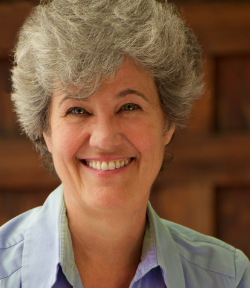
Photo credit: Diane Alancraig Photography
Much hangs in the balance with the outcome of the 2022 midterm election. Republicans, who appear poised to take control of the House as I write this column, have openly promised to stall Biden’s Democratic agenda until after the 2024 presidential election. They have also explicitly threatened to force a default on US Treasury debt unless they obtain cuts to programs like Social Security and Medicare. As imperfect as our system of government is, certain ideals—representational government, equal opportunity, and no citizen above the law—are core values of our Constitution. Will we be able to retain our majority-rule democracy or succumb to the ultra-right MAGA Republican delusions of minority rule, fueled by corporate super PACs?
Despite having dodged the pandemic bullet, our orchestras remain in jeopardy because our country—our democracy—is in jeopardy. Rights and freedoms long assumed sacrosanct are being stripped away by a radical Supreme Court. Conservative state legislatures are curtailing the right of their citizens to vote and threatening to take control of the electoral system altogether, regardless of the popular vote. The looming reality of climate change continues to destabilize our economy and our planet.
As we have learned over decades of economic vicissitudes, when the going gets tough, the arts go first.
Coming out of the Great Depression in the 1930s, the Franklin Delano Roosevelt administration passed the New Deal programs, a sweeping package of federal regulations, financial reforms, and public works projects enacted by the Federal Government to help the American people survive. Among those programs, which included banking industry regulation and the establishment of Social Security, the Works Progress Administration (WPA) employed artists, musicians, actors, and writers. The arts program, known as Federal One, ultimately inspired the passage of the National Foundation of Arts and Humanities Act of 1965 (NEA and NEH) under the Kennedy and Johnson administrations. The NEA provided the foundation for many of our full-time ICSOM orchestras (Chairperson’s Report, Senza Sordino April ’22). Without the possibility of passing universal healthcare coverage through Congress, Medicare and Medicaid were signed into law in 1965 as an amendment to Social Security.
With the election of Ronald Reagan in 1980, Republican control ushered in the era of reducing big government—recall Reagan’s famous quote that “…government is not the solution to our problem; government is the problem.” Funding for public works has been cut mercilessly ever since. Social Security and Medicare remain under constant threat. Union membership and bargaining power have diminished along with the salaries and working conditions of Americans. The banking industry and Wall Street are untethered from regulation and corporate subsidies continue to grow along with a burgeoning military industrial complex. Money continues its upward flow into the hands of the top one percent—ironically, the very money that our orchestras are now dependent on for survival.
By necessity, our orchestra associations are apolitical. Our nonprofit business model requires that we fund-raise from every ideological stripe. But we are not our orchestras. We are members of the American Federation of Musicians and of ICSOM. We are a labor union. Unions have the collective power to change our society but only so long as we retain our representative government and stop the silent, slow-motion insurrection that is undermining our democracy.
It is encouraging to see the beginnings of a resurgence of organized labor across the country. New industries are organizing and voting in favor of union representation under a collective bargaining agreement. How can we, members of ICSOM, help to turn the political tide in our country? What can we do alongside our AFM colleagues to affect the political landscape and help create a more egalitarian society—one that supports the rights of all our citizens and promotes a more democratic and representative government?
Our union is our political vehicle. Check in with your Local and see what might be on their political agenda. It may be too late for the 2022 midterms but the 2024 presidential election cycle is right around the corner.
The future of our country is in our hands. The futures of our orchestras, the AFM, and ICSOM are in our hands. We are the living network that connects our orchestras to one another—and we are their voice within our union. Let’s make use of it and see what we can accomplish together.





